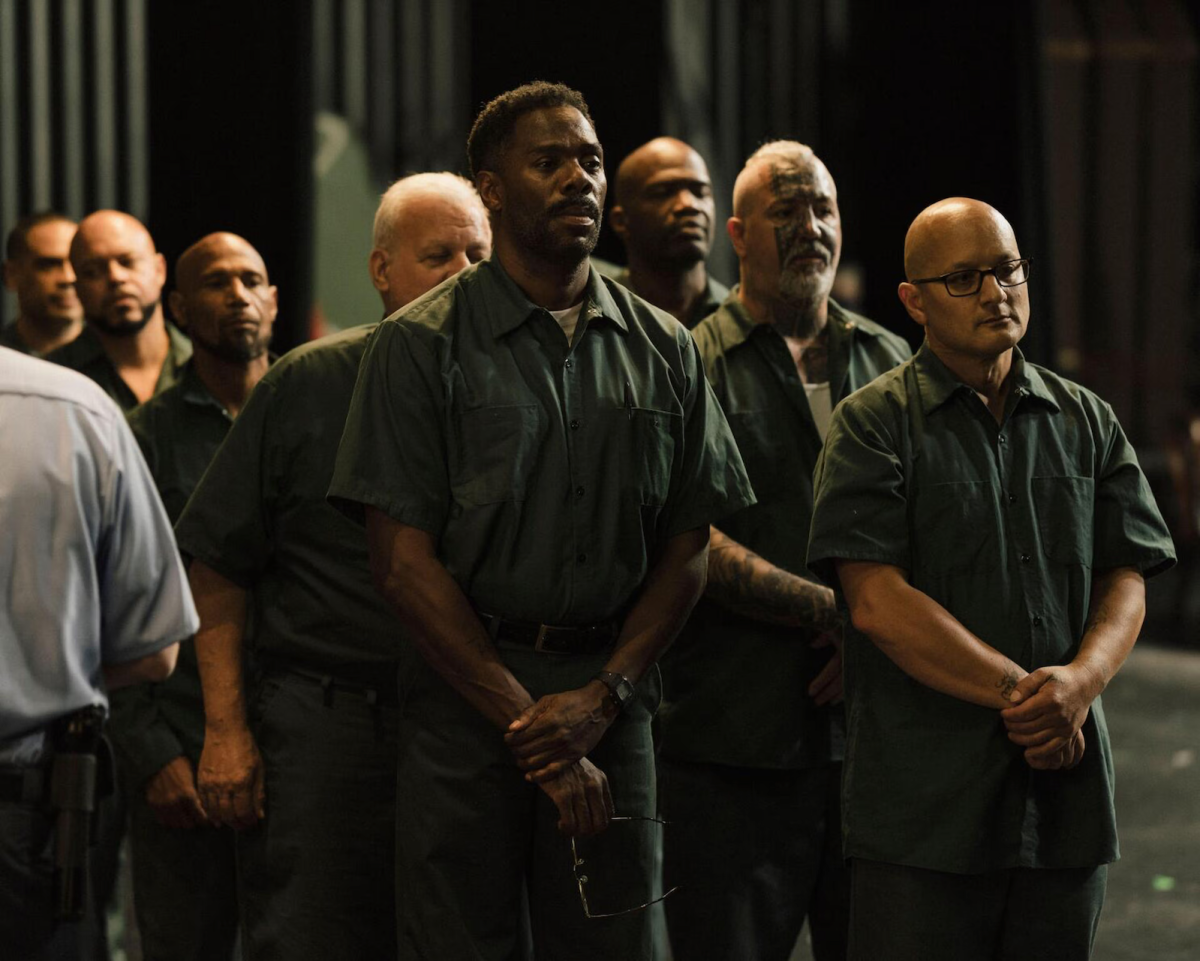With only 191 theaters showing its initial August 2024 release, A24’s “Sing Sing” is an obscurity compared to best picture nominees “Anora” and “The Brutalist,” both seen in over 1,000 theaters in the United States. While only A24 can answer for its lack of visibility, what I do know is that “Sing Sing” deserved so much more than a fleeting limited release paired with nearly zero press. It might as well be why the film missed out on a best picture nomination. A film with an impeccable 97% audience score on Rotten Tomatoes should not be a well-kept secret. Its inaccessibility — months of radio silence before finally landing on video-on-demand services — only added to its elusiveness. And that’s a travesty because “Sing Sing” isn’t just good — it deserves to be in the conversation for best picture.
Based on a true story, the film follows a group of incarcerated men at the Sing Sing Correctional Facility, a maximum-security prison in Ossining, New York, who find purpose and connection through the prison’s Rehabilitation Through the Arts program. At the group’s center is Divine G (Colman Domingo), a long-time inmate wrongfully convicted of murder, who embraces acting as an escape and a form of self-discovery. The ensemble cast behind Domingo isn’t made up of professional actors — they’re formerly incarcerated individuals with firsthand experience in the criminal justice system. And this authenticity is what makes “Sing Sing” so powerful.
Domingo is joined on the screen by formerly incarcerated men like Clarence “Divine Eye” Maclin, Sean San José, Jon-Adrian “JJ” Velazquez and David “Dap” Giraudy. Their lived experiences infuse their performances with a palpable depth and authenticity. Beyond that, they deliver genuinely captivating performances full of nuance, warmth and humor. Despite lacking formal training, each actor fully inhabits their role with acting that never once breaks the story’s immersion. There’s no hesitation or holding back — just honest, lived-in performances that could stand proudly next to any of the year’s best ensembles. None of the performances feel incomplete or unpolished. “Sing Sing” doesn’t blur the line between performance and reality — it erases it entirely. The potently authentic ensemble work and Domingo’s nuanced lead performance are precisely the artistry that Oscar voters should celebrate.
A best actor nomination for Domingo is undoubtedly deserved, but it ironically undermines the very quality that makes “Sing Sing” so special. It’s a film built on the collective power of its performances, a tapestry woven from the experiences of professional and non-professional actors alike. To single out one individual, even one as deserving as Domingo, feels like a disservice to the collaborative spirit that fuels the film’s emotional core. This collaborative spirit is further exemplified by the fact that Domingo and the formerly incarcerated cast members were all paid the same salary, a testament to the film’s commitment to valuing each contribution equally.
Perhaps “Sing Sing’s” most significant strength also made it challenging to market and sell. It isn’t a prison drama soaked in harmful tropes that we’re used to. It’s a film about creativity and redemption that changes how we see incarceration and incarcerated people. And a theater program designed to rehabilitate the incarcerated proves its success when those same individuals return to participate in a critically acclaimed film after their release.
That kind of storytelling isn’t always easy to package in a way that guarantees box office returns, but that doesn’t mean it’s any less worthy of recognition. It’s precisely the kind of film the academy should champion. This revolutionary approach to casting and compensation, combined with the film’s powerful message, makes “Sing Sing” a truly singular and essential piece of media. Movies like “Sing Sing” don’t come around often; when they do, they deserve to be seen and celebrated.
Contact Chloe Haack at [email protected].
























































































































































